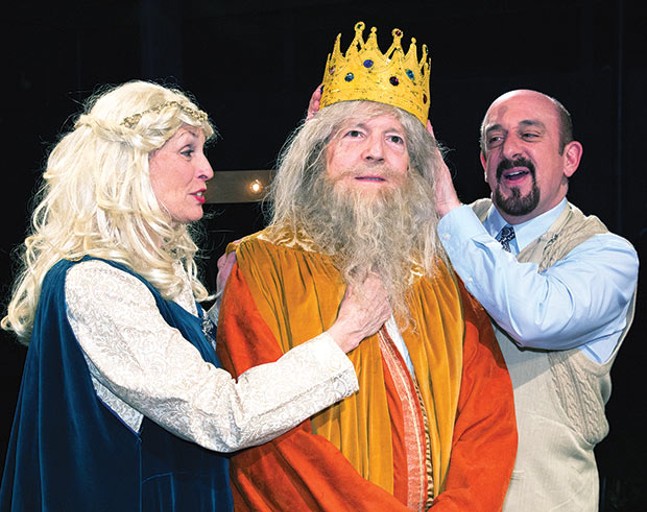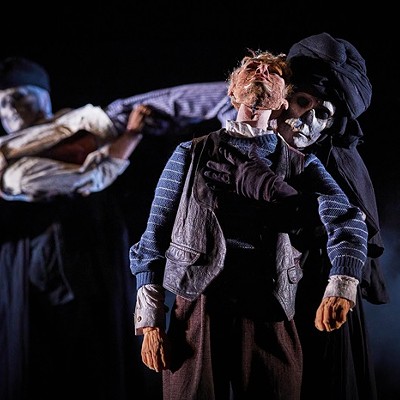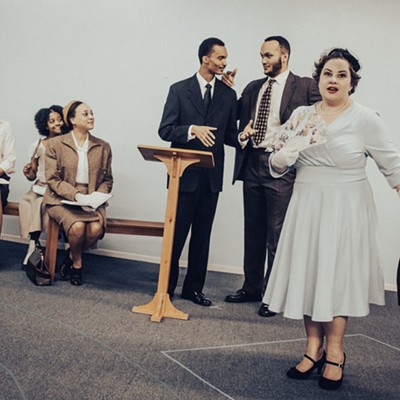There’s a famous line in theater: “Be careful of the scenery … you never know who’s been chewing it before you.” In Ronald Harwood’s play The Dresser, the person previously gnawing down on every inch of available scenery would be the character known only as Sir. He’s an actor of the old school; bombastic, egomaniacal, shameless and now in the final act of his life.
But, as the title suggests, the play’s really about Norman, the man who’s been Sir’s life support system for many, many years. He not only sees to Sir’s costumes, he takes his abuse, controls backstage traffic and runs interference between Sir and his wife, known as Her Ladyship. And even though Norman has already given his all to Sir, when the play opens we see much more is going to be required.
It’s 1942 and Sir has taken his ragtag acting company out on a tour of the provinces just as the London Blitz is getting underway. Sir has passed his sell-by date some years ago and though he’s hounded by existential dread, he can’t stop. In the first act, Norman tries desperately to ready the star for his evening’s performance of King Lear — even though Sir has just signed himself out of a local hospital. Act Two takes place during the Lear intermission and what happens after the curtain comes down.
There’s no question Harwood started out as an actor himself — the language and feel of the show is steeped in old theater lore. But what elevates The Dresser beyond mere backstage story (and why it’s been twice made into a movie), is that Harwood uses theater as a metaphor for life — the endless repetitive slog of it all and the absolute necessity of deceiving yourself and others just to get through it. It’s a funny, smart and moving work featuring two extremely juicy roles for actors.
Fortunately, the Little Lake Theatre production has Art DeConciliis and Mark Stevenson on hand to play Norman and Sir. DeConciliis’ painfully intense and quiet performance is the perfect match to the howling-at-the-wind rage of Stevenson. This is an expertly balanced co-performance finely calibrated by director James Critchfield.
There’s a number of enjoyable supporting performances as well, especially Joyce Miller playing the conflicted love and contempt of Her Ladyship and Lynne Franks’ furious, toxic devotion as the stage manager.



















